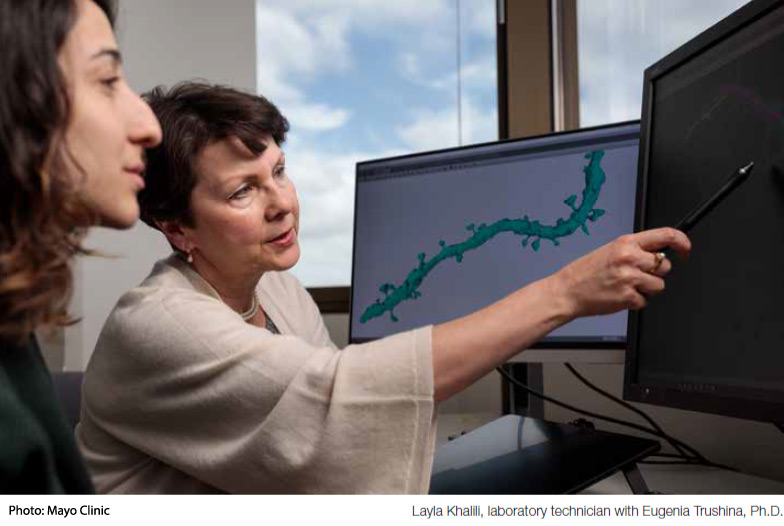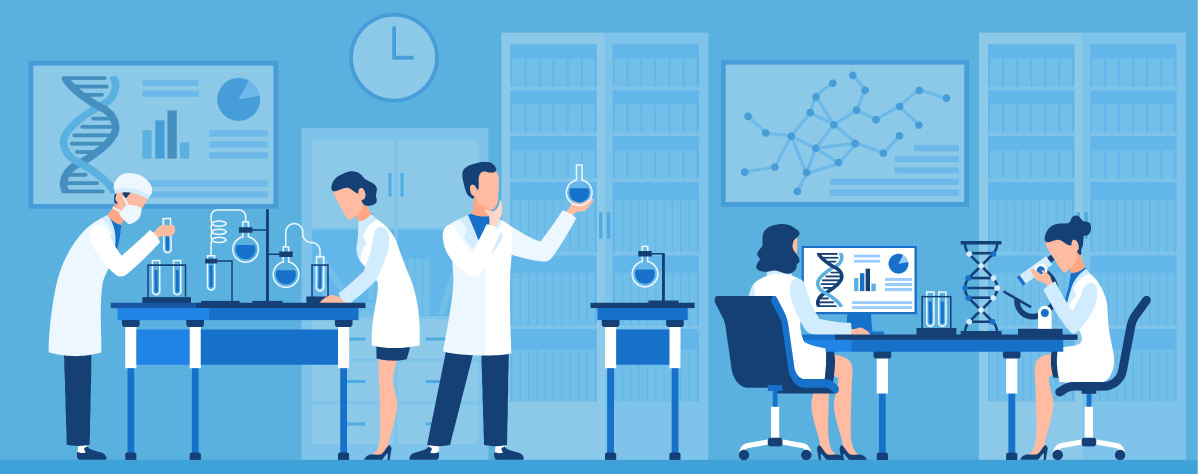For the past seven years, the Alzheimer’s Drug Discovery Foundation (ADDF) and the Harrington Discovery Institute at University Hospitals have partnered to fund the ADDF-Harrington Scholar Award, a program dedicated to advancing academic discoveries into potential treatments for Alzheimer’s disease and related dementias by giving scientists access to resources that go beyond money.
As the 2019 recipient of this award, Dr. Eugenia Trushina of Mayo Clinic Rochester is one of those scientists, granted $600,000 for her late stage preclinical research on new drug candidates that show promise in restoring mitochondrial function and energy homeostasis in the brain. As the 2019 awardee, she not only receives funding, but also in-depth advisory support from pharmaceutical industry experts on the Harrington team.

“The ADDF-Harrington Scholar Program is unique in that it’s about more than just funding,” said Dr. Trushina. “I’m surrounded by a virtual pharmaceutical team that helps me maximize my project’s potential for clinical success by bridging the gaps between the academic world and the spheres of industry and pharma. The program is helping me to move my discoveries from the lab towards the clinic, and hopefully into the hands of doctors and patients.”
Dr. Trushina’s project seeks to develop drug compounds that target metabolic dysfunction in neurons. This dysfunction is one of the earliest changes seen in the brains of people with Alzheimer’s, even appearing before amyloid plaques, tau tangles, and cognitive symptoms become evident. The compounds Dr. Trushina and her team have tested have shown a positive effect in both symptomatic and pre-symptomatic models of the disease.
“The mitochondria are a relatively new target, and a very promising one,” said Dr. Howard Fillit, the ADDF’s Founding Executive Director and Chief Science Officer. “Dr. Trushina has shown that restoring function in mitochondria, the powerhouses of the cell, may be able to delay the onset or slow the progression of Alzheimer’s disease. This award will help her identify the best drug candidate to do that in human clinical studies within two years.”
As a result of this program, several scientists over the years have been able to carve a path from their benches to clinical studies with the goal of improving the lives of many people. The ADDF-Harrington program looks for creative science and approaches that think outside of the box, with the potential to translate discovery into clinically meaningful therapies.
“This program fosters an entrepreneurial spirit,” notes Dr. Fillit. “It gives academic scientists great exposure to the preclinical drug development process while still at work in their lab. The support they receive is customized to fit their research needs and helps with project management. Our aim is to bridge the gap between promising science in academia and a drug that can go into patients in the clinic.”
Applications are encouraged from researchers who are looking for funding, as well as the collaborative resources this grant provides. The ADDF-Harrington Scholar 2020 RFP is accepting letters of intent through May 18, 2020. Areas of interest include proteostasis and neurovascular health, as well as other targets related to emerging therapeutic areas for dementia. For more information about this award visit us online.
